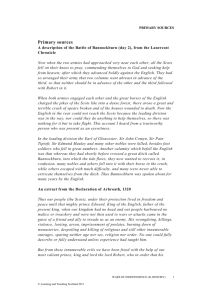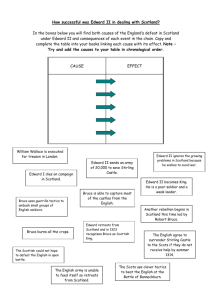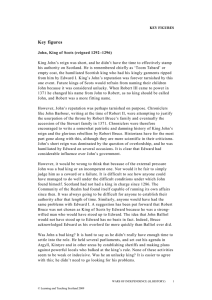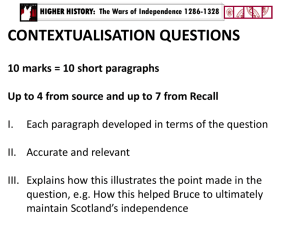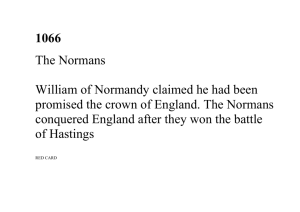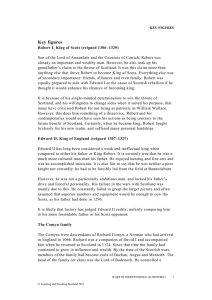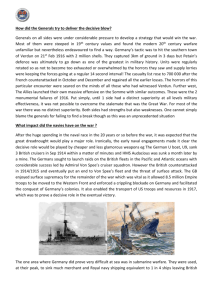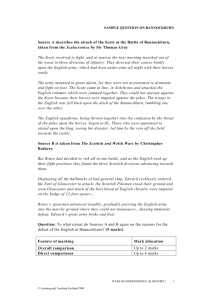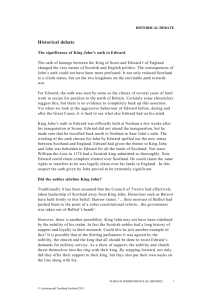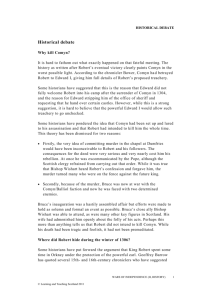Explains why the Scots were unable to achieve a decisive outcome
advertisement
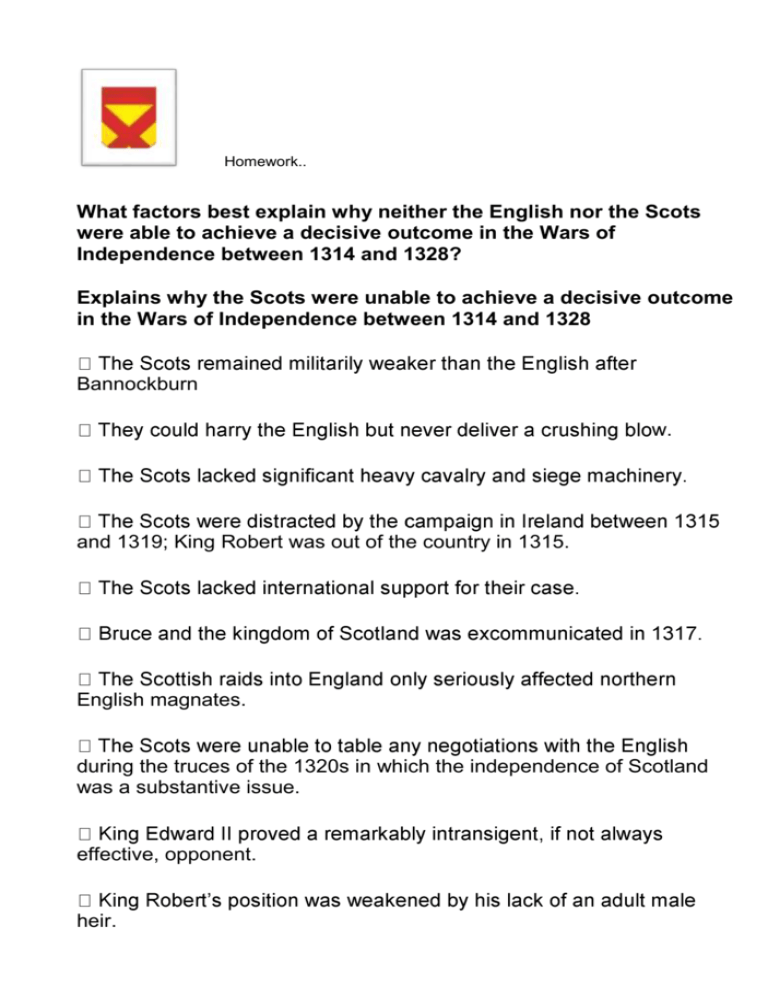
Homework.. What factors best explain why neither the English nor the Scots were able to achieve a decisive outcome in the Wars of Independence between 1314 and 1328? Explains why the Scots were unable to achieve a decisive outcome in the Wars of Independence between 1314 and 1328 Bannockburn w. and 1319; King Robert was out of the country in 1315. English magnates. during the truces of the 1320s in which the independence of Scotland was a substantive issue. effective, opponent. heir. plot marked a serious challenge to King Robert’s authority. alienating huge amounts of royal land. Explain why the English were unable to achieve a decisive outcome in the Wars of Independence between 1314 and 1328 Bannockburn. rth tactics’ to deny supplies to the English army in the Lothians. military solution on the Scots. saw as an ‘unwinnable war’ in Scotland. against Edward II by joining the Scottish side. Byland in 1322. the excommunication of Scotland. 1320s, as well as to other crucial aspects of legislation. seriously weakened by internal faction in England throughout his reign, leading to his eventual deposition. Geoffrey Barrow has argued that the intransigence of King Edward II was the major reason why no decision could be reached before 1328. Michael Penman argues that King Robert faced serious domestic opposition which meant that he could not focus on the war with England. He emphasises the importance of lack of Papal support for the Scottish cause. Michael Prestwich has stressed the importance of internal division and weakness in England; and the lack of political will of King Edward II. Michael Lynch has argued that neither side possessed the military or the diplomatic weight to deliver a decisive blow.
